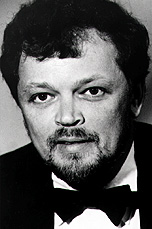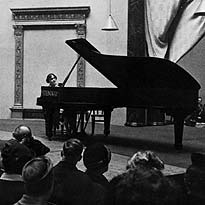So many wonderful things since I last wrote – pressure of work and other activities has prevented me blogging them, much as I wanted to. So here is a list of what I should have written about, for your edification and delight…
Covent Garden Chamber Orchestra concert, Saturday 4 October – especially the Schumann Konzertstück for four horns, magisterially played by Richard Lewis, Jo Towler, Duncan Gwyther and Liz Kadir. Wow.
Haydn’s Creation at the Korean Full Gospel Church in Raynes Park, Sunday 12 October – lots of fun, the Koreans charming and lovely, my contra bottom B flat much appreciated!
The English Chamber Orchestra at Cadogan Hall, Wednesday 15 October – Tippett, Britten (Les Illuminations with stunning young soprano Mary Bevan), plus some works by Arab composers including the brilliant and hilarious Saxophone Concerto by Waleed Howrani – a perfect Last Night of the Proms piece?
Celebrity Recital at Cadogan Hall, Sunday 19 October – Emma Johnson, Julian Lloyd Webber, John Lill, surprisingly not a full house: a treat of Beethoven and Brahms clarinet trios, the Weber Grand Duo Concertant, Julian playing two of his father’s pieces (with Andrew in the audience), and John Lill scorching our eyebrows off with the Chopin C minor Nocturne and the amazing Prokofiev Toccata
Rossini’s Matilde di Shabran at the Opera House, with Juan Diego Florez
Our very own Phoenix Orchestra concert (see previous post) on Thursday 23 October, especially the wonderful and inexhaustible Tom Poster in the Rachmaninov 3rd Piano Concerto
The Esbjerg Ensemble at Cadogan Hall, Sunday 26 October: Nonet by Louise Farrenc, Poulenc’s Sextet for piano and wind (fantastic), the Schumann Piano Quintet (wonderful as ever). Slightly dour Danish group, lifted to a higher plane by the tiny, sparky, beaming and incredibly accomplished pianist Marianna Shirinyan (who she??)
And the Brodsky Quartet at Cadogan Hall on Wednesday 29 October – Beethoven Razumovsky No. 1 (what a wonderful piece), Tchaikovsky Quartet No. 1, and two little Stravinsky numbers (Concertino and Three Pieces) which were spellbinding.
Now I’m off to rehearse contra in Boléro (don’t ask)…
Normal service one of these days!
thanks for the picture, Diana…

 The Burghers of Blackheath did themselves proud this morning – so many tickets sold for
The Burghers of Blackheath did themselves proud this morning – so many tickets sold for 


Recent Comments